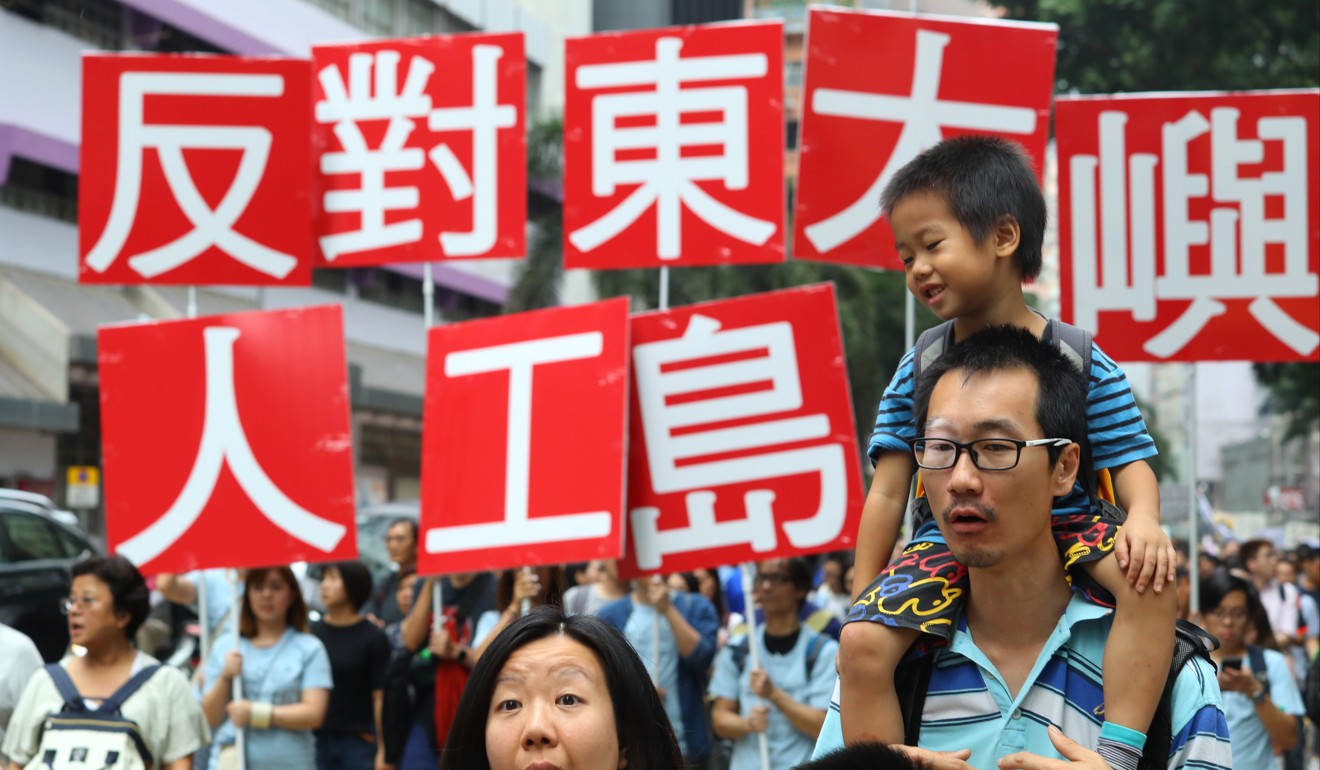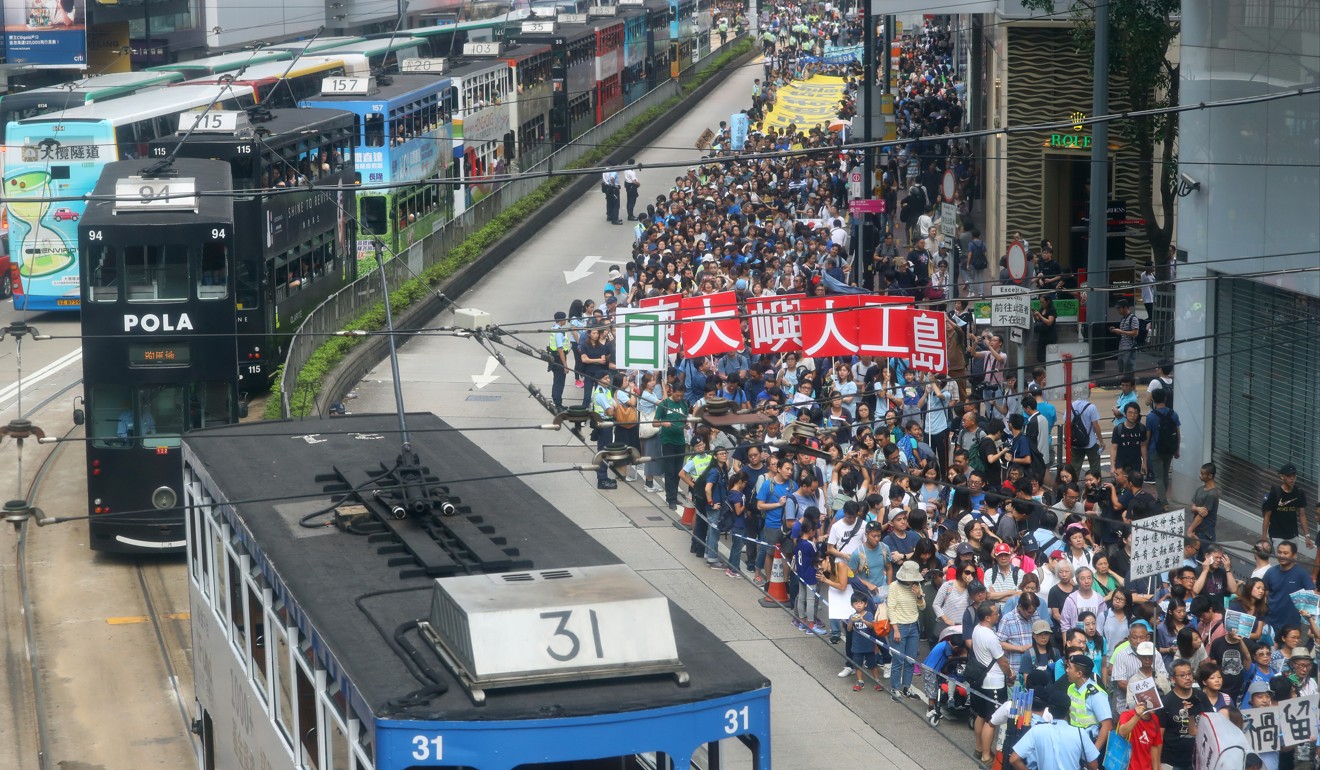
Opponents of land reclamation ‘do not represent Hong Kong’, property tycoon Gordon Wu says
- Founder of major local developer says city’s future is bleak if government keeps acquiescing to ‘minority opinion’
- Organiser of march against chief executive’s plan to build artificial islands counters that scepticism runs deep
The collective voice of thousands of residents who marched to oppose a controversial multibillion-dollar reclamation project earlier this month “do not represent Hong Kong”, an outspoken property tycoon said on Sunday.
And if the government kept acquiescing to “minority” opposition, the city’s future would be destined to decline, according to Gordon Wu Ying-sheung, founder and chairman of Hopewell Holdings, a major developer.

“Can a few thousand people represent all of Hong Kong? Can some granny in Cheung Chau who believes it is environmentally damaging claim to be an expert on environmental protection?”
Can some granny in Cheung Chau who believes it is environmentally damaging claim to be an expert on environmental protection?
Wu said the city’s biggest “challenge” was “learning to be democratic”, adding that many people believed that just because they had a right to be consulted, they had a right to veto or stop a project.
“Let’s say we get a Michelin-starred chef to come to Hong Kong and we’re all sitting down for dinner. There’s a consultation: some don’t want fish, some don’t like chicken. But do they come up with the menu?
“If you keep retreating when some people come out to protest, then Hong Kong’s future will go this way,” he explained, pointing his finger downwards.
Critics argue that reclaiming such a large swathe of sea would end up a massive flood-prone white elephant costing taxpayers up to HK$1 trillion, while spelling disaster for the marine environment.
Despite official estimates that Hong Kong’s population would peak at 8.2 million by 2043, Wu said the city needed to conceptualise a long-term plan for at least 10 million inhabitants to drastically increase the amount of average per capita living space, which, at 170 sq ft, is one of the smallest in the world.
Without surplus land, he said, “your property prices will just keep getting more expensive. You are just benefiting the government and the property developers.”
Wu believed officials had the responsibility to furnish data and conduct studies such as environmental impact assessments. People could challenge them via judicial reviews if they saw fit.

Eddie Tse Sai-kit, convenor of the Save Lantau Alliance, one of the march’s organisers, said the fact that so many people turned out for the march on just three days’ notice clearly reflected public opinion and pent-up grievances.
“It was spontaneous, and we did not mobilise anybody to come,” he added.
Several opinion surveys have also shown people did not agree that land reclamation was the best solution for solving the city’s housing crisis.
Is land reclamation the answer to Hong Kong’s housing woes?
“As for what’s scientific, many professional consultancies are paid by developers to conduct studies and assessments,” Tse said.
“Wu himself has proposed reclaiming thousands of hectares around Hong Kong to sell for decades, so it is very clear where his interests stand.
“If the people or the inhabitants of these affected islands aren’t representative, can a small circle of property developers claim that they are?”

